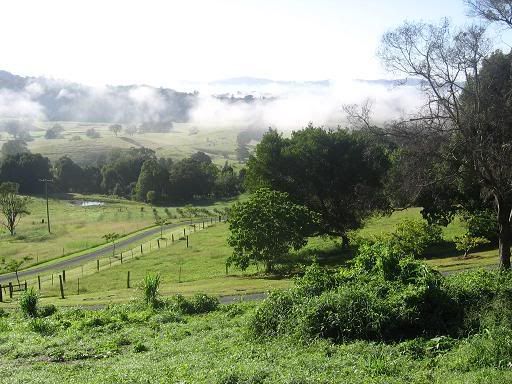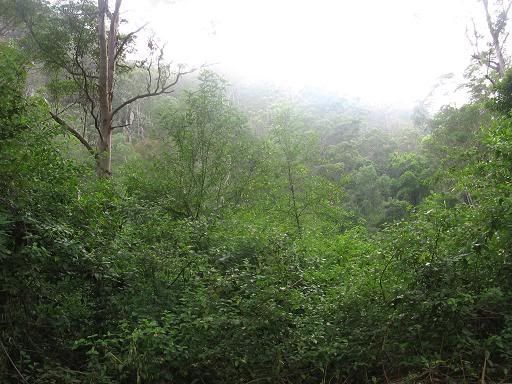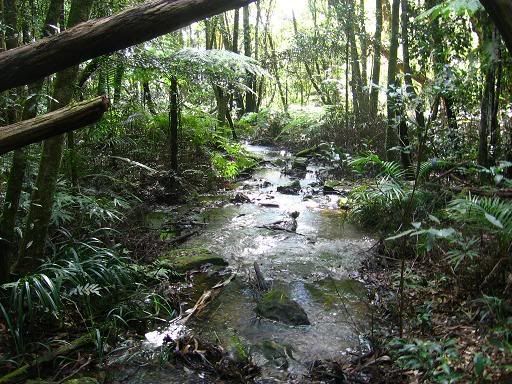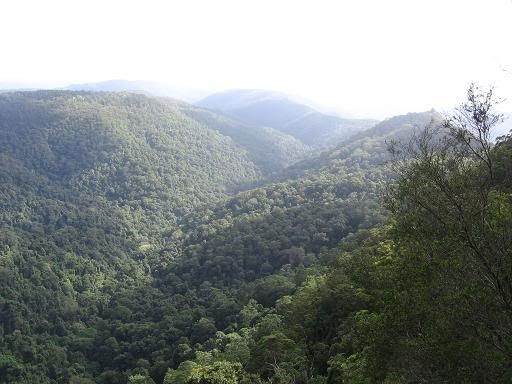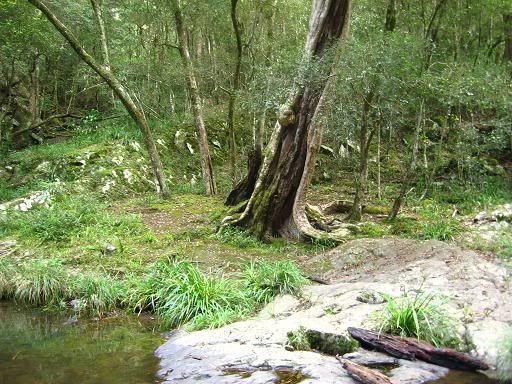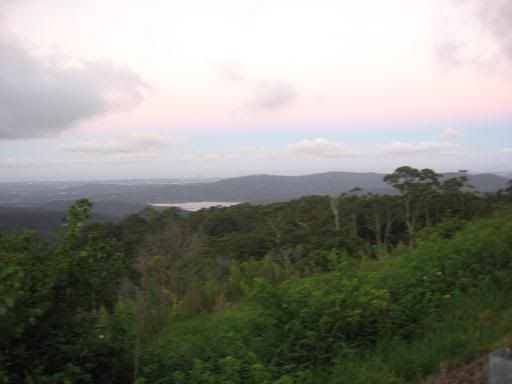I was a little surprised to discover that
this post seems to have attracted some attention in the blogging world -- particularly in view of the fact that nobody who read it left a comment. There is a long but
well-written piece over at
Treadly and Me, and another mention over at
Spinopsys (which reminds me that I need to update my blog roll at some point). Something I noted about these "facilities" in a comment on
Treadly's blog was the fact that not only are councils guilty of ignoring the wise words of experienced
transportational cyclists, but so too are many so-called cycling "advocacy groups" who really should know better.
There is something in this that doesn't seem to reconcile with any other facet of life. When I first found an advocacy group roughly a decade ago, I had ridden considerably fewer kilometres than I have now (over 150,000km fewer to be a little more specific). Often when people made points about bike lanes and paths and why we supposedly needed more of them, I tended to just nod along -- even they didn't always serve my needs as a cyclist. I basically figured that "more facilities" had to be a good thing, without being overly bothered by the fact that many of them were simply sub-standard. Around that time and for a few years after it, it seemed as though people had some respect for my opinions on these matters, and the more I simply nodded along, the more that respect seemed to grow.
That was all well and good, until my experience increased to the point that I started to question some of these assumptions. At around about the time I started touring in the early years of this decade (and consequently riding in different places), I began wondering just why things were as they were (and still are in most cases). Was it really a good thing to have a heap of facilities that didn't serve the needs of myself or very many other cyclists? Why was it that a city like the Gold Coast, which has a higher annual budget for cycling "facilities" than entire states, should have such a high incidence of hit and run assaults and cyclist fatalities? Were the facilities
really the answer?
Was it really a good thing to invite a heap of people to suddenly take up cycling without any form of education, training or even (in some cases) a clue? Would it not lead to these people deciding cycling was "too dangerous" and quitting? Or worse, campaigning to have cyclists banned from many roads? Interestingly, when I started to ask these questions, I found that the respect many other people held for my opinions started to diminish. People who had been emailing me asking whether or not something was a good idea stopped contacting me. I even had one person at one meeting tell me that I wasn't qualified to comment on the positioning of a particular bike lane because I was an experienced cyclist and therefore didn't know what I was talking about -- true story.
There have been similar incidents in dealing with tabloid "journalists" making anti-cyclist rants. Once a person has been around long enough to realise that feeding trolls is not an effective means of eradicating them, and consequently points out that bombarding these idiots with responses just encourages them, they're often sneered at. Even more so if they can provide examples of exactly this happening exactly the same way in the past.
So what I want to know is this, why is it that experience, that intangible quality so valued in so many walks of life, should be sneered at when it comes to cycling advocacy? How is it that years spent dealing with "facilities" and traffic conditions should be detrimental to one's knowledge in these areas? How is it that a person who has made cycling the major (or indeed only) part of their daily
transportational routine is suddenly clueless on the skills required to do so? In short, why is the person now managing to do what so many "advocates" claim to want the world to start doing are either ignored or insulted for pointing out the reality of a given situation?
There are a number of possible explanations. It's a well-known fact that survival is the main objective of most committees, and anything left over for whatever they're supposed to be representing is a bonus.
Treadly pointed out that many of the things that experienced cyclists refer to (such as education and law enforcement) are perhaps less obvious than simply building "facilities". Indeed, many may see the removal of a sub-standard and dangerous bike lane as a slap in the face for cyclists, and perhaps this could cost a club members, which weakens a committee's position. It's far easier to try to attract inexperienced cyclists by adding a bike path and claiming "look what we've done", even if it doesn't really benefit anyone.
Perhaps there's also a certain self congratulatory effect of what was mentioned above. If someone can claim to have had $X million spent on "facilities", or been published on the letters page of some tabloid newspaper, they can make a claim that they're "making a difference" or "changing the world". Again, the more obvious policies will attract more pats on the back than some of those less obvious but more effective (particularly in the long term).
Personally I'm not really concerned about having millions of dollars spent on "facilities" or reading back and forth arguments on letters pages. All I really want is to be able to ride whichever road I choose to ride for whatever reason without having some idiot trying to run me off the road. That will only happen once a few boneheads get some training in dealing with traffic, and when the police start removing those who fail to comply. Those of us who have ridden a few kilometres have long known this, but I'm not expecting anybody else to start paying attention now.







